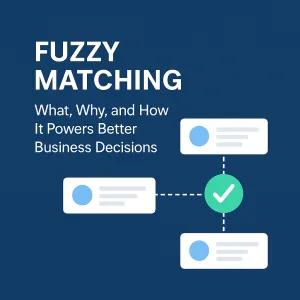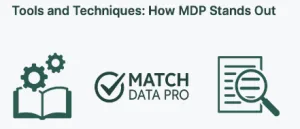Fuzzy Matching: qué, por qué y cómo permite tomar mejores decisiones empresariales

En el mundo actual, impulsado por los datos, hacer coincidir los registros con precisión es algo más que un reto técnico: es una necesidad empresarial. Ya se trate de consolidar sistemas CRM, limpiar bases de datos de marketing o vincular registros de clientes entre departamentos, las coincidencias exactas no siempre son suficientes. En estos casos concordancia difusa entra en juego.
Tabla de contenido
¿Qué es el emparejamiento difuso?
La concordancia difusa es el proceso de identificar registros que son similares -pero no idénticos- comparando sus valores de un modo que tolera imperfecciones como errores tipográficos, faltas de ortografía, abreviaturas o diferencias de formato.
A diferencia de la concordancia exacta tradicional, que sólo conecta los registros que son perfectamente idénticos, la concordancia difusa utiliza una puntuación de similitud para determinar lo cerca que están dos datos. Esto permite a las empresas emparejar "Jon Smith" con "John Smithe", o "Acme Corp." con "Acme Corporation", aunque las entradas no coincidan al 100%.
Esto es especialmente valioso cuando se trata de datos desordenados del mundo real, algo que todas las empresas tienen.
¿Por qué es importante la concordancia difusa?
Hay mucho en juego cuando sus datos no están alineados. Los registros duplicados, los perfiles de clientes fragmentados y las bases de datos desajustadas pueden dar lugar a..:
-
Campañas de marketing ineficaces
-
Análisis e informes deficientes
-
Información incompleta sobre los clientes
-
Oportunidades de ingresos perdidas
-
Riesgos de cumplimiento en sectores regulados
La concordancia difusa permite resolver estos problemas a gran escala, encontrando conexiones que el equipo de datos podría pasar por alto manualmente.
Y cuando se aplica a través de una plataforma inteligente, puede ofrecer resultados rápidos, precisos y automatizados, reduciendo tanto el riesgo como los costes operativos.
¿Cómo funciona el emparejamiento difuso?
En esencia, la concordancia difusa utiliza algoritmos de similitud para medir la "proximidad" de dos cadenas de texto. Estos algoritmos generan una puntuación (normalmente entre 0 y 1 o entre 0 y 100) que indica el grado de similitud entre dos fragmentos de texto.
Algoritmo Jaro-Winkler
Un método popular, utilizado en Match Data Pro (MDP), es el algoritmo Jaro-Winkler, muy adecuado para comparar cadenas cortas como nombres, empresas y direcciones. Da prioridad a las coincidencias que tienen principios similares, una característica útil cuando los usuarios suelen escribir los nombres de memoria o introducen los datos de forma incoherente.
Pero MDP va más allá de la mera comparación de cadenas.
Opciones de combinación personalizadas
Permitimos a los usuarios crear definiciones y criterios de coincidencia personalizados, combinando reglas exactas y difusas. Puede definir varias estrategias de correspondencia para distintos tipos de datos, aplicar umbrales e incluso especificar si todos los registros de un grupo deben coincidir entre sí (todos con todos) o sólo algunos (coincidencia parcial). Esta flexibilidad le permite adaptar el proceso de correspondencia a su lógica empresarial real.
"MDP procesa 1 millón de registros en menos de 3 minutos".
Herramientas y técnicas: Cómo destaca la MDP
Mientras que muchas plataformas se basan en sistemas de concordancia basados en tokens o fonéticos predefinidos, Match Data Pro toma un camino diferente: rendimiento y precisión.
Así es como MDP maneja la coincidencia difusa de forma diferente:
-
Definiciones personalizadas: Cree múltiples estrategias de correspondencia para gestionar diferentes casos de uso de datos dentro de un mismo proyecto.
-
Criterios ponderados: Asigne niveles de importancia a cada criterio (por ejemplo, el nombre por encima del número de teléfono).
-
Rendimiento de alta velocidad: MDP está diseñado para gestionar millones de registros con una velocidad excepcional y un uso mínimo de recursos.
-
Agrupación de todos con todos: Asegúrese de que todos los registros de un grupo coinciden entre sí, no sólo uno o dos.
-
Flexibilidad de entrada: Haga coincidir los datos entre fuentes importadas como Excel, bases de datos y almacenamiento en la nube.
- Vea en acción cómo MDP gestiona la deduplicación y la vinculación de registros.
Estas capacidades permiten a las organizaciones ir más allá de las similitudes superficiales y establecer correspondencias con contexto y confianza.
Ventajas de Fuzzy Matching con Match Data Pro
La aplicación del emparejamiento difuso con MDP aporta resultados empresariales cuantificables:
-
Elimine los registros duplicados: Limpie sus conjuntos de datos antes de la divulgación, la elaboración de informes o el análisis.
-
Fusione registros desconectados: Vincule variaciones de un mismo cliente o empresa procedentes de varios sistemas.
-
Mejore la toma de decisiones: Asegúrese de que los informes y cuadros de mando reflejan datos reales, no ruido.
-
Reduzca costes: Minimice el gasto inútil en marketing y el tiempo dedicado a las revisiones manuales.
-
Mantenga el control: Ajuste los umbrales y la lógica de agrupación para cumplir sus normas de calidad.
Casos prácticos en todos los sectores

La concordancia difusa admite una amplia gama de escenarios empresariales de alto valor:
-
Deduplicación de CRM: Consolide los registros de clientes de los sistemas de ventas, marketing y asistencia.
-
Coincidencia de vendedores o proveedores: Identifique los vendedores duplicados en los sistemas de adquisición.
-
Vinculación de historiales médicos: Combine registros de pacientes de clínicas, laboratorios y aseguradoras.
-
Limpieza de listas de marketing: Elimine direcciones y nombres casi duplicados de las listas de difusión.
Tanto si está resolviendo problemas de datos internos como creando una solución para su cliente, la correspondencia difusa garantiza que sus esfuerzos comiencen con datos limpios y fiables.
Dé el siguiente paso con Match Data Pro
Si su negocio depende de datos limpios y unificados, la correspondencia difusa ya no es opcional, es fundamental. Con Match Data Pro, tendrá acceso a un motor de correspondencia difusa de alto rendimiento diseñado para las necesidades reales de su empresa.
Empiece a emparejar con confianza, rapidez y claridad:empiece hoy mismo con Match Data Pro.

